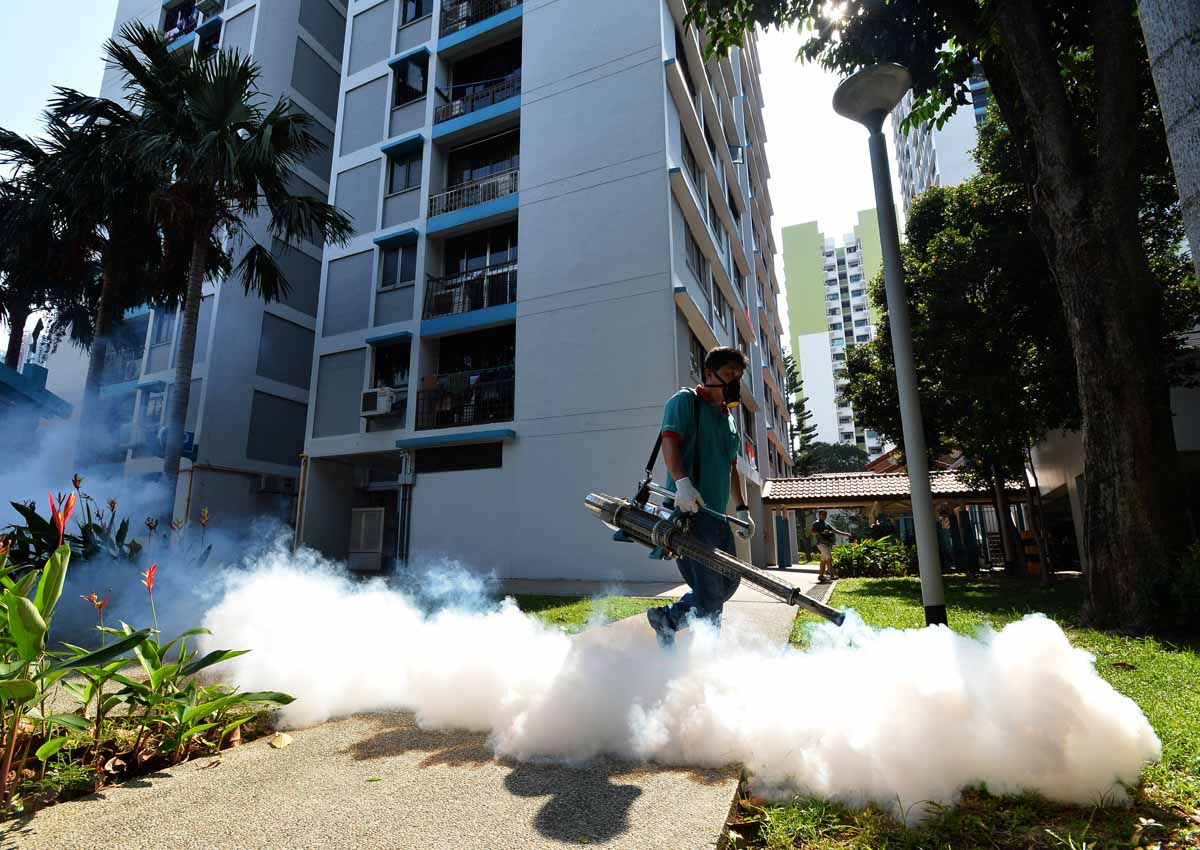It started with a day at the playground near their HDB flat in the Aljunied Crescent/Sims Drive area last week.
But on Saturday night, the young girl came down with a fever. The family took her to the polyclinic and they were eventually referred to the hospital. The diagnosis: Zika.
The really troubling news came on Wednesday, when the mother, who is more than five months pregnant with her second child, found out that she had been infected as well.
She had suffered “mild symptoms” and was taken to KK Women’s and Children’s Hospital. She became Singapore’s first pregnant woman to be struck by Zika, announced the authorities.
“We were so anxious and couldn’t sleep well,” said her mother-in-law, in an interview at their home yesterday.
All seems well now, after two days of checks at the hospital, and her daughter-in-law is expected to return home soon, added the woman with relief.
“We were worried and afraid but we are feeling a bit better as my daughter-in-law is well now. She just has to go back for check-ups regularly later on,” said the woman in Mandarin.
Her daughter-in-law is still in hospital and her health and baby’s development will be monitored. She has been referred to a maternal-foetal medicine specialist for counselling.
Zika afflicts most severely unborn babies whose mothers are in the first trimester and early part of the second trimester of pregnancy. Scans will be conducted to monitor the foetus, but even so, the results may not be clear.
But it is difficult to quantify the risk to a pregnant woman, although it is known that if she gets infected in early pregnancy, the risk is higher, said Dr Leong Hoe Nam, an infectious diseases specialist at Mount Elizabeth Novena Hospital.
He added: “The data is horribly skewed by Brazil, which reports a higher rate of microcephaly. That is not the case for the French Polynesia islands and Colombia.”
Microcephaly is a condition where a baby has an abnormally small head. The risk of this ranges between 1 per cent and 13 per cent.
Dr Leong added that in French Polynesia, the risk was at 1 per cent, and he believes Singapore is likely to face a similar rate. He said that in all live births, the risk of having a child defect is around 1 per cent.
byseow@sph.com.sg
racheloh@sph.com.sg

Get MyPaper for more stories.














































